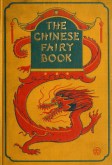The King of the Ants
Chinese Folktale
Once upon a time there was a scholar, who wandered away from his home and went to Emmet village. There stood a house which was said to be haunted. Yet it was beautifully situated and surrounded by a lovely garden. So the scholar hired it. One evening he was sitting over his books, when several hundred knights suddenly came galloping into the room. They were quite tiny, and their horses were about the size of flies. They had hunting falcons and dogs about as large as gnats and fleas.
They came to his bed in the corner of the room, and there they held a great hunt, with bows and arrows: one could see it all quite plainly. They caught a tremendous quantity of birds and game, and all this game was no larger than little grains of rice.
When the hunt was over, in came a long procession with banners and standards. They wore swords at their side and bore spears in their hands, and came to a halt in the north-west corner of the room. They were followed by several hundred serving-men. These brought with them curtains and covers, tents and tent-poles, pots and kettles, cups and plates, tables and chairs. And after them some hundreds of other servants carried in all sorts of fine dishes, the best that land and water had to offer. And several hundred more ran to and fro without stopping, in order to guard the roads and carry messages.
The scholar gradually accustomed himself to the sight. Although the men were so very small he could distinguish everything quite clearly.
Before long, a bright colored banner appeared. Behind it rode a personage wearing a scarlet hat and garments of purple. He was surrounded by an escort of several thousands. Before him went runners with whips and rods to clear the way.
Then a man wearing an iron helmet and with a golden ax in his hand cried out in a loud voice: “His Highness is graciously pleased to look at the fish in the Purple Lake!” Whereupon the one who wore the scarlet hat got down from his horse, and, followed by a retinue of several hundred men, approached the saucer which the scholar used for his writing-ink. Tents were put up on the edge of the saucer and a banquet was prepared. A great number of guests sat down to the table. Musicians and dancers stood ready. There was a bright confusion of mingled garments of purple and scarlet, crimson and green. Pipes and flutes, fiddles and cymbals sounded, and the dancers moved in the dance. The music was very faint, and yet its melodies could be clearly distinguished. All that was said, too, the table-talk and orders, questions and calls, could be quite distinctly heard.
After three courses, he who wore the scarlet hat said: “Quick! Make ready the nets and lines for fishing!”
And at once nets were thrown out into the saucer which held the water in which the scholar dipped his brush. And they caught hundreds of thousands of fishes. The one with the scarlet hat contented himself with casting a line in the shallow waters of the saucer, and caught a baker’s dozen of red carp.
Then he ordered the head cook to cook the fish, and the most varied dishes were prepared with them. The odor of roasting fat and spices filled the whole room.
And then the wearer of the scarlet hat in his arrogance, decided to amuse himself at the scholar’s expense. So he pointed to him and said: “I know nothing at all about the writings and customs of the saints and wise men, and still I am a king who is highly honored! Yonder scholar spends his whole life toiling over his books and yet he remains poor and gets nowhere. If he could make up his mind to serve me faithfully as one of my officials, I might allow him to partake of our meal.”
This angered the scholar, and he took his book and struck at them. And they all scattered, wriggling and crawling out of the door. He followed them and dug up the earth in the place where they had disappeared. And there he found an ants’ nest as large as a barrel, in which countless green ants were wriggling around. So he built a large fire and smoked them out.
Note: This charming tale is taken from the Tang Dai Tsung Schu.
The Chinese Fairy Book

Notes: The Chinese Fairy Book contains 74 Chinese folktales, sorted into several categories.
Author: Various
Editor: Dr. R. Wilhelm
Published: 1921
Publisher: Frederick A. Stokes Company, New York